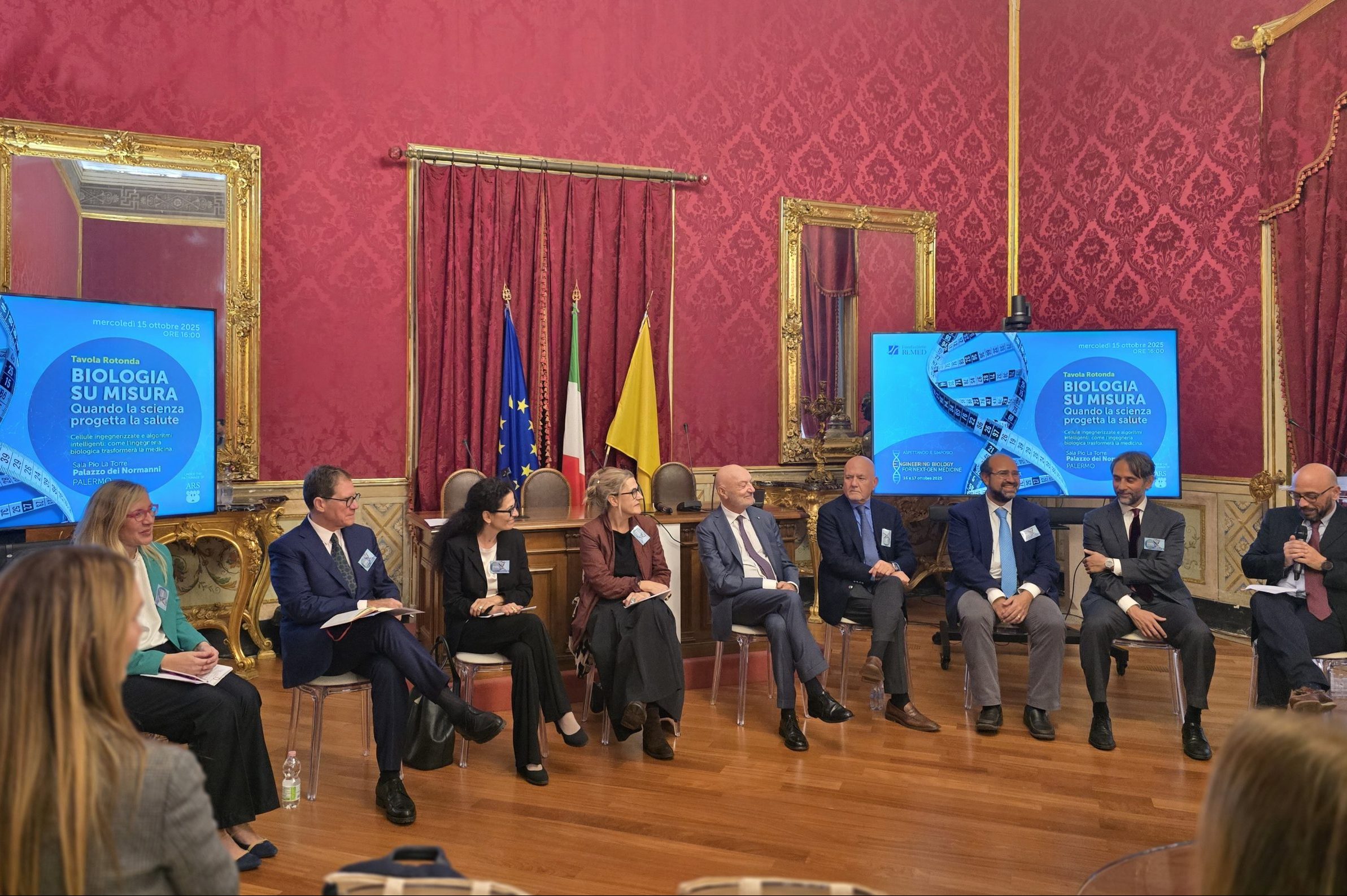On October 15, 2025, the Ri.MED Foundation organized at Palazzo dei Normanni the panel discussion “Biologia su misura – quando la scienza progetta la salute” (Tailor-made Biology: When Science Designs Health), an institutional event dedicated to the new frontiers of engineered biology and to Sicily’s role as a laboratory of scientific innovation.
The event served as a prelude to the Ri.MED Scientific Symposium 2025 – “Engineering Biology for Next-Gen Medicine”, held in the following days, which brought together scientists and young researchers from around the world to discuss the future of personalized medicine and synthetic biology.
Moderated by Antonio Giordano (Innovation Island), the round table offered a space for dialogue between science, institutions, and citizens, addressing topics ranging from bio-mimicry and cell engineering to computational models and artificial intelligence applied to biomedical research.
In his remarks, Paolo Aquilanti, President of the Ri.MED Foundation, emphasized that “biomedical progress represents a shared interest that stems from dialogue between research, institutions, and citizens.” Giulio Superti-Furga, Scientific Director of the Foundation, highlighted how biological engineering now makes it possible to design cellular systems with entirely new functions, raising ethical as well as scientific questions of great significance. Lucia Altucci, member of the Ri.MED Scientific Committee and Professor of General Pathology at the University of Campania “Luigi Vanvitelli”, underlined the connection between engineered biology and the One Health approach, stressing that human and environmental health are part of a single balance — a concept central to the vision of the new Ri.MED Research Center in Carini.
According to Antonio D’Amore, Ri.MED Group Leader in Tissue Engineering, bio-mimicry is a powerful tool for innovation: observing nature and reproducing its principles means creating more sustainable and functional solutions for patients. Francesca Spagnoli, Professor of Regenerative Medicine at King’s College London, spoke about a research approach aimed at “learning from development,” referring also to her work on pancreatic islets. From a clinical perspective, Massimo Pinzani, Scientific Director of IRCCS ISMETT, pointed out that new biological technologies may soon translate into personalized treatment pathways, particularly in regenerative medicine and complex transplants.
Manfredi Rizzo, Professor of Endocrinology at the University of Palermo, recalled the University’s commitment to interdisciplinary education, with new doctoral programs developed in collaboration with Ri.MED and ISMETT. Giusi Condorelli, Italian Ministry of Health, reaffirmed the importance of a coordinated national strategy for the internationalization of biomedical research and the strengthening of the IRCCS network.
The round table concluded with a shared reflection on Palermo’s growing role as a center of biomedical innovation. “With the new Ri.MED Center and the future ISMETT,” said Aquilanti, “Sicily can become an international hub where research and healthcare come together, generating scientific, economic, and social value for the region.”

